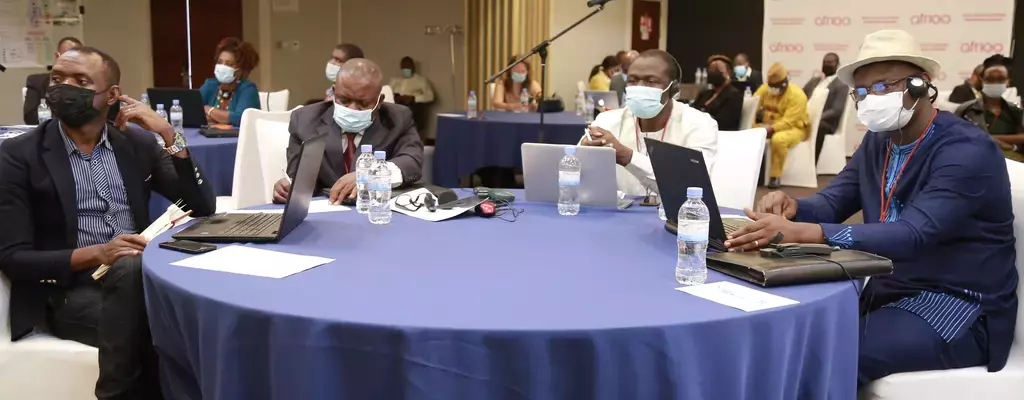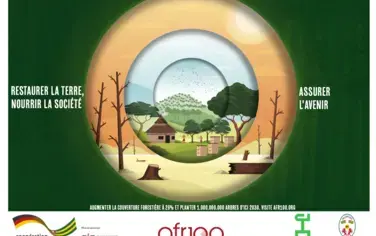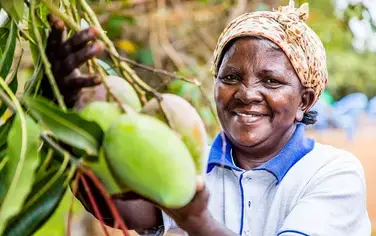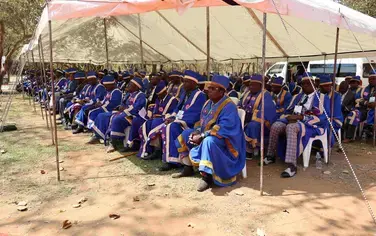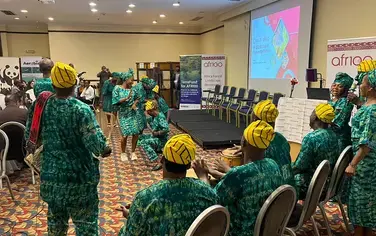Kigali and Johannesburg — The African Forest Landscape Restoration Initiative (AFR100) gathered representatives from 31 African Countries, the private sector, national and international organizations, and youth ambassadors in Kigali, Rwanda, to participate in its Fifth Annual Partnership Meeting. They have a common goal: to begin restoring 100 million hectares of land by 2030. The hybrid event was a first of its kind for the partnership and featured the launch of a documentary film, AFR100 Presents: The Grand African Green Up, which highlights local action for restoring biodiversity, food systems, and the climate.
“As African countries look for best pathways to build more durable, inclusive and resilient economies, the Fifth AFR100 Annual Partnership Meeting provides a unique and timely opportunity to stress that our lives are built on healthy landscapes,” stated Mr. Mamadou Diakhite, Acting Head of Environmental Sustainability at the African Union Development Agency (AUDA-NEPAD), as he welcomed the meeting’s participants in Kigali and around the world.
The movement to restore forests, farmland and other landscapes is expanding across Africa because it helps farmers, herders and rural communities thrive. Thirty-one African countries have committed to restore 127.7 million hectares, which, if achieved, will exceed the initiative’s namesake goal of 100 million hectares by 2030.
“Inclusive economic growth and job creation is fundamental to reduce poverty and safeguard human rights in the continent. Forest and landscape restoration is a cost-effective option for African communities to tackle climate change and create economic opportunities for millions of people. As Sweden, we’re proud to support this year’s cohort of the Land Accelerator Africa of 100 young African entrepreneurs and women that are restoring land and making profit through it,” said Ms. Christina Wedekull, Deputy Head of the Swedish Embassy in Kigali.”
Launched in 2015 at the UN climate conference in Paris (COP21), AFR100 is a Pan-African initiative led by AUDA-NEPAD. The initiative facilitates coordination, knowledge sharing and investment toward restoring land across the continent, guided by African stakeholders — from community leaders and smallholder farmers, to government representatives at all levels and investors.
The Government of Rwanda, which has committed to restore 2 million hectares, hosted the Annual Partnership Meeting in Kigali.
“The Government of Rwanda recognizes the importance of Bonn Challenge and AFR100 in forest landscape restoration to sustain the country’s economy and people’s livelihoods. The Ministry of Environment has geared up efforts towards transformative landscape investments in line with the country’s Vision 2050 and National Transformation Plan (2018-2024), which aim to achieve a sustainable and low carbon economy through sustainable forest management and the preservation of national forest ecosystems,” said Dr. Jeanne d’Arc Mujawamariya, Hon. Minister of Environment of Rwanda.
The Secretariat and partners agreed that even though there has been progress since the partnership’s inception, land is not being restored at the pace needed to achieve the committed goals before 2030. In order to accelerate this process, countries should adopt and implement monitoring tools to track progress, share knowledge and communicate results.
“Six years into the AFR100 partnership, it’s time to redouble our effort to restore land and track our progress,” said Dr. Susan Chomba, Director of Vital Landscapes, World Resources Institute (WRI) Africa. “By proving that restoring Africa’s landscapes can have a positive impact on food systems, biodiversity, the climate, and rural livelihoods, we can channel billions of dollars in investment into a brighter future for Africa’s young generation, if accompanied by sufficient delivery to the ground and accountability mechanisms.”
AFR100 was designed to feed into the larger targets of global restoration initiatives, such as the Bonn Challenge and New York Declaration on Forests. Now, partners also see it as a main supporting pillar of the overarching U.N. Decade on Ecosystem Restoration (2021–2030), which will officially begin on World Environment Day (June 5), as well as the U.N. Decade on Family Farming (2018–2028).
For press inquiries, contact Teko Nhlapo (TekoH@NEPAD.org) and Will Anderson (will.anderson@wri.org).
